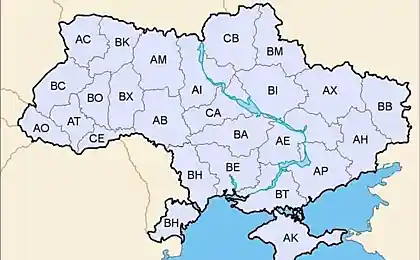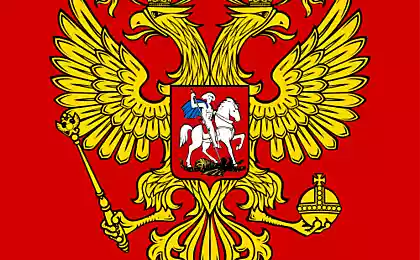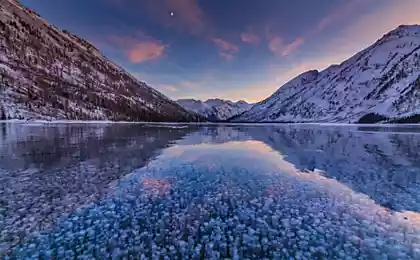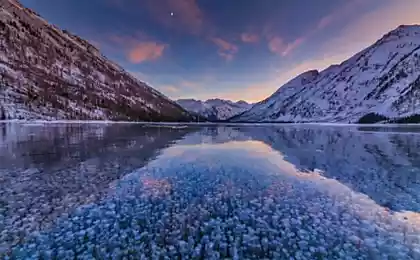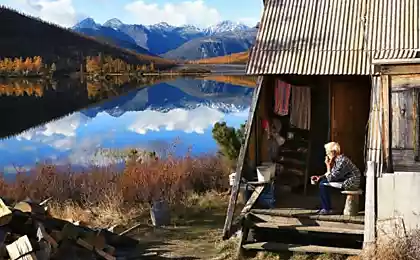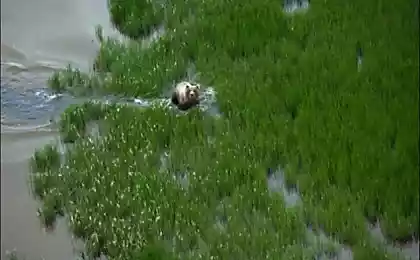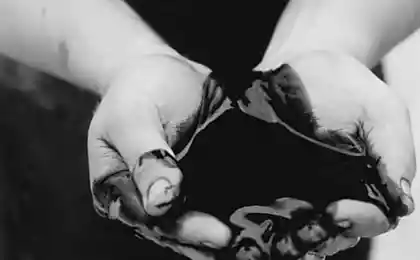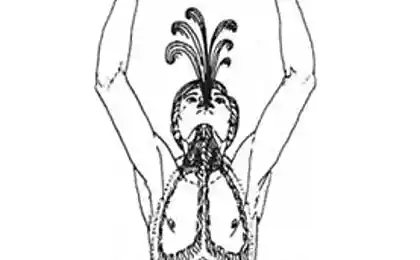919
Magadan Region
Via strana.ru
The majority of people in our country with the word Magadan there is only one association - the most terrible and heavy camp prisoners. And that is certainly true. However, few people think that there is in the Magadan region in addition to the camps and prisoners. I'm talking about the beautiful original nature of these harsh northern places. When I saw photos there, longing to see it with my own eyes do not let go for a second. And, interestingly, the desire was to go it on their own, but not at public expense. Well, you know what I mean.
23 beautiful views of the Magadan region and the city of Magadan, accompanied by legends and historical facts about this remote and harsh place.
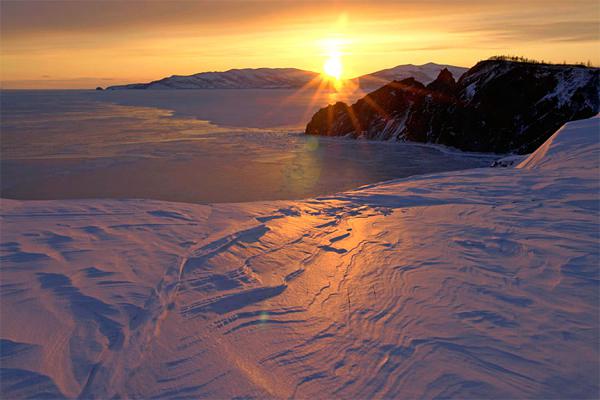
The first gold in Kolyma found lone prospector Bari Shafigullin nicknamed Boriska in 1915 Srednekansk area.
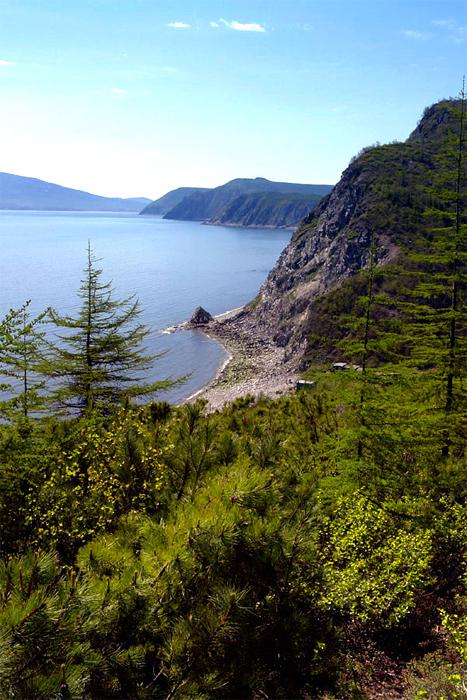
In 1928, the first Kolyma expedition geologist Yu.A.Bilibina initiated a detailed study of the Kolyma River. The result of the expedition was the discovery of gold-North-East region.
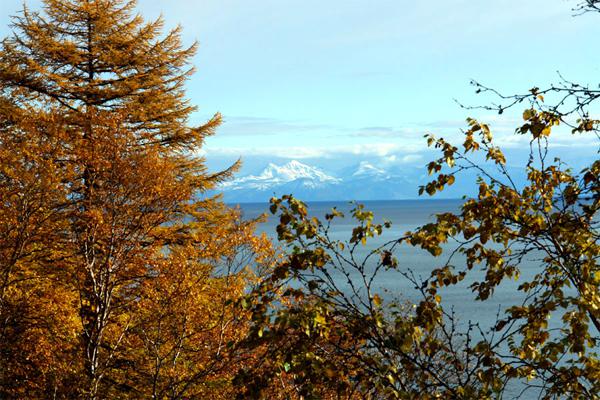
December 17, 1930 in the village of Nagaevo, triggered the current capital of the Kolyma River, was created Nagaevsky village council. He offered to call Severostalinskom city and bay where it is located, from Nagaevskoy rename the bay Lazo in memory of the hero of the Civil War, tortured by the Japanese in the Far East. The plans were never realized.
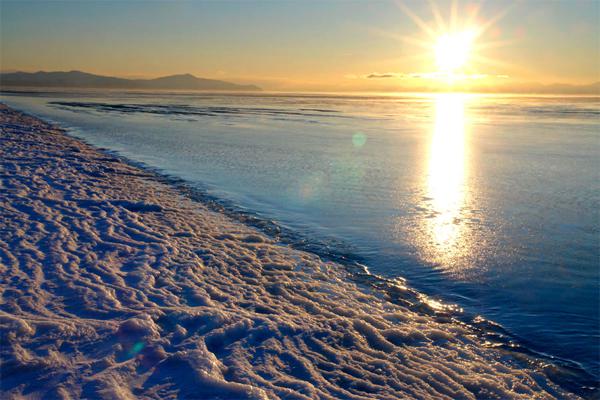
In 1931, the Kolyma was established "State Trust for industrial and road construction in the area of the Upper Kolyma" Dalstroy. "
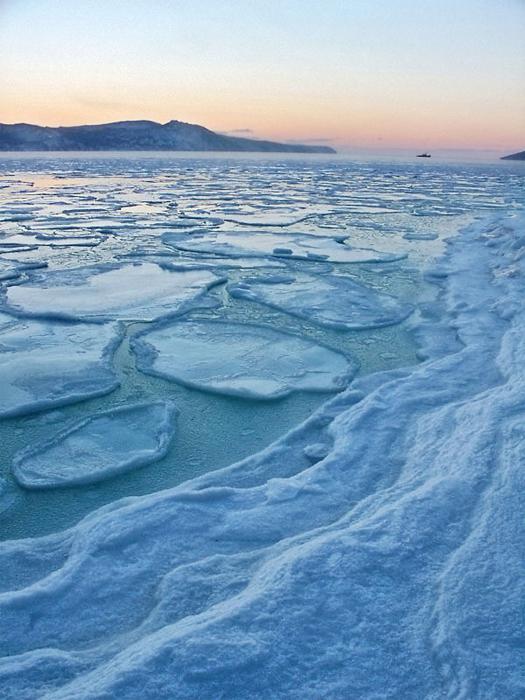
Around the same time began the organization of the Kolyma labor camps. It existed before the formation of the Magadan region. Nevertheless, even now, many residents are Russian city of Magadan camp with watchtowers and barbed wire.
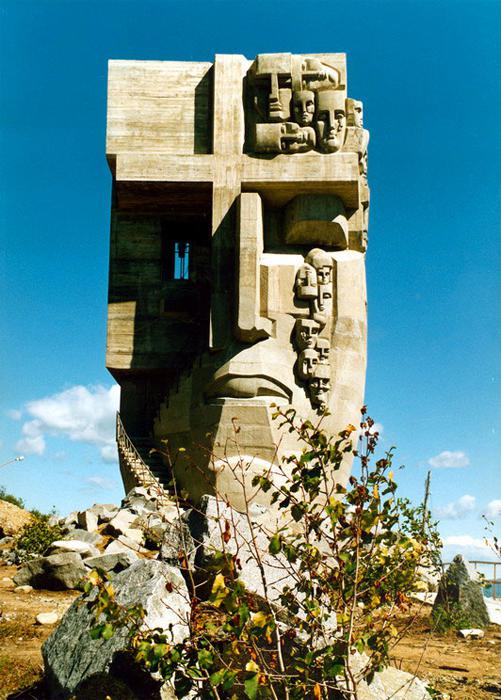
During the Great Patriotic War, many magadantsy fought and helped the rest of the front of the hard work. On defense measures Kolyma residents collected a total of about 500 million rubles. The funds kolymchan built a large amount of military equipment, such as a link bombers "Komsomol Kolyma" air squadron "of Soviet polar explorers," aircraft "Dalstroevets", "Kolyma farmer", "social activist" Dalstroi "tank column" Pioneer Kolyma. "
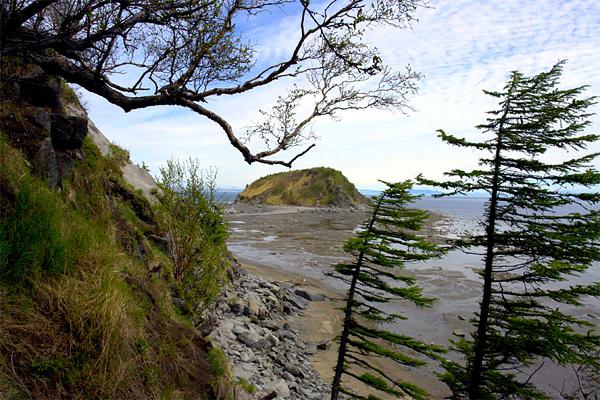
His appearance is obliged to Magadan sea. In the early 1930s, sailors found the bay, which at first was called Portage, and later - Nagaeva. It turned out that the bay - large and deep, well located, with a flat bottom that allows the courts to come close to the shore. In the Bay built a port and on the beach - a working village, which in 1939 was transformed into the city of Magadan.
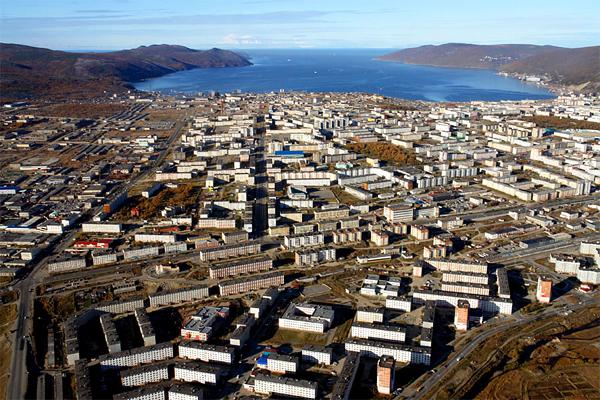
In the second half of the 80-ies of XX century in the "Serpantinka", where in the late 1930s, prisoners were shot, we started to conduct the washing operation - it turned out that on this site there are deposits of gold. However, with the gold-bearing sands in the wash device constantly gets human bones and bullets. Because of this, the miners categorically refused to work here, and the mine was closed down.
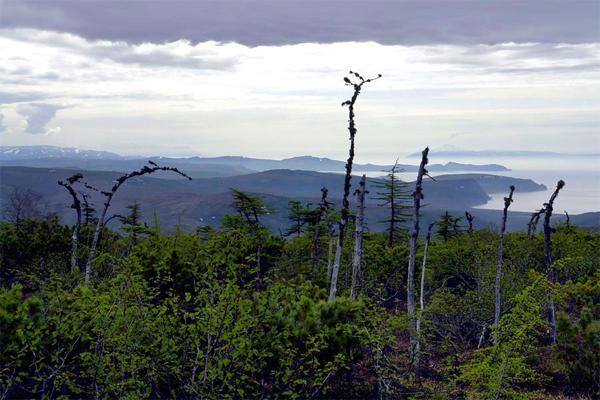
Legends
Locals tell the tale of the Kolyma River. She was born in the distant taiga in the mountains. After some time, he broke away from the mother, went to seek his grandmother Kolyma-Sea. Gradually Kolyma matured and began to appear in her children streams that turn into rivers. Daughters of the River Kolyma Bayagchan mother told me to start at a lot of fish, so that people had food. Another daughter - Korkodan - ordered to be narrow and high banks, where people were hiding from the cold. The youngest daughter - Anuy river - a mother punished to spread along the banks of partridges and hares, that people were fed. A son - River Omolon - asked her to wake up early from their winter dormancy. And it became mighty and turbulent river Omolon. She wakes up before all in the second half of May, and wake-Kolyma old woman, so she went to look for the sea. Grandmother-sea learned that there is a river, which is looking for her whole life, and she stepped forward. Sea scattered land splashed forward and joined the river to the sea. Therefore Kolyma so unexpectedly wide spreads at the confluence of the sea.
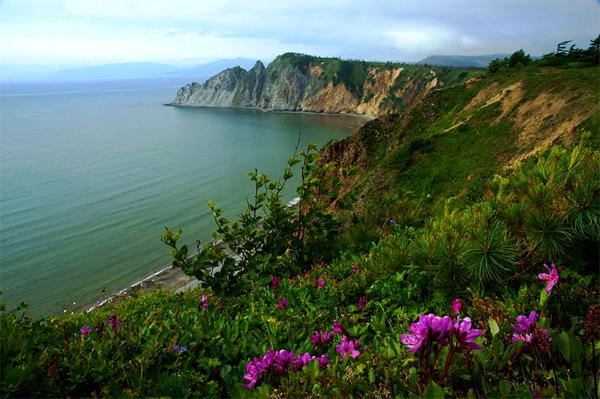
There is an old legend of Orochi Evens or associated with mud-bath resort Talaya Magadan. She says that in the valley of the river thawed, local residents discovered the thawed land plot on which always crept fog. Because of superstitious fear, people tried to bypass this place. But one day in the forest was sick and weak old man. The old man drank water source and warmed himself by bathing in it, and when the tribesmen came back, they found him healthy.
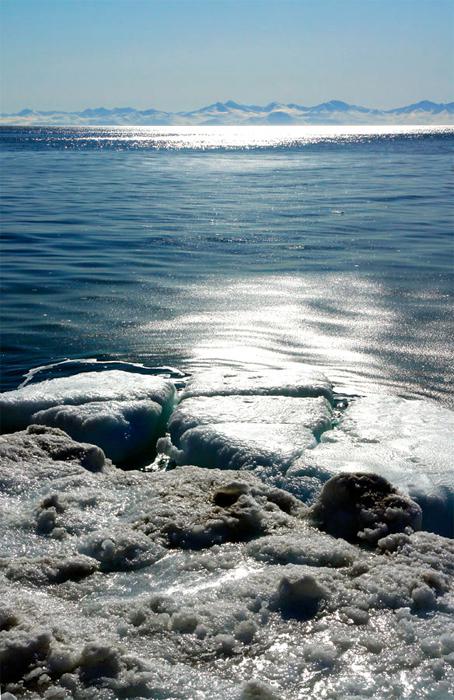
One of the attractions of the Kolyma tract (now the federal highway "Kolyma") is a mountain road after the village of the fork, where the mountains as it is compressed between a path. There are many dangerous places where accidents occur frequently. One of them is called Swallow's Nest. If you believe the popular legend, there sat a machine gunner who shot the fleeing camp prisoners.
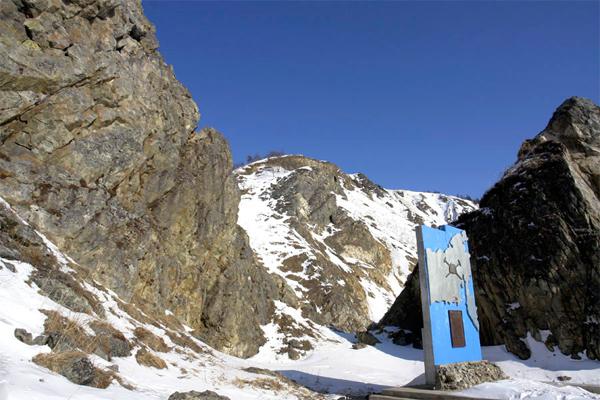
His appearance is obliged to Magadan sea. In the early 1930s, sailors found the bay, which at first was called Portage, and later - Nagaeva. It turned out that the bay - large and deep, well located, with a flat bottom that allows the courts to come close to the shore. In the Bay built a port and on the beach - a working village, which in 1939 was transformed into the city of Magadan.
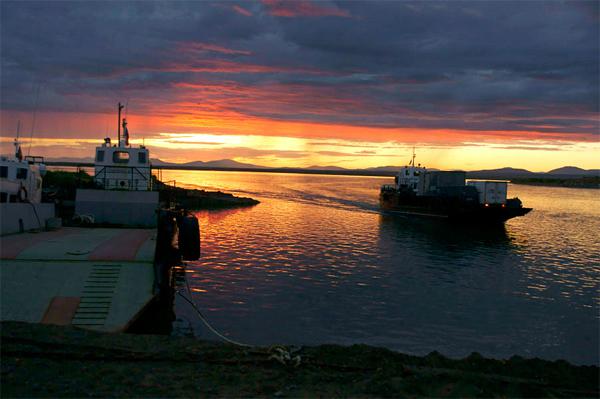
According to legend, one of the Sea of Okhotsk fierce typhoon swept. He drove the waves of the sea in the hills and left piles of sediment. Marine sediments in the Even - "Mon-year." From this word comes the name and city of Magadan.
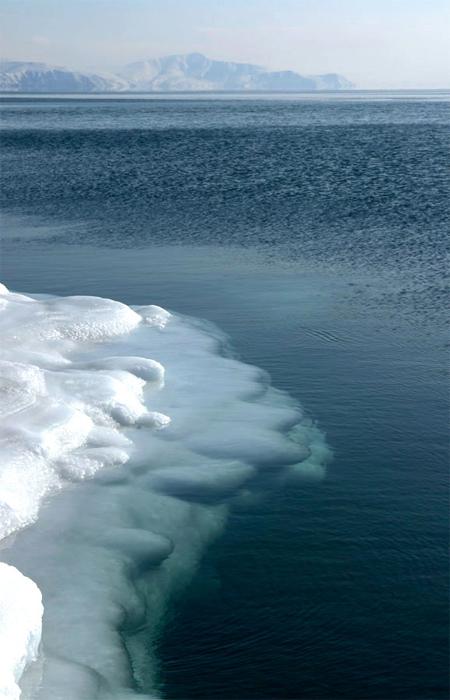
There is a legend that the founders were exiled to Magadan Leningrad. When they were brought to the Kolyma, they saw a bleak rocky. People began to look for something familiar, and suddenly in the wake of the bay Nagaeva spotted fish, smelt. Leningradites remembered native Neva and rolled up their sleeves, laid the first stone in the foundation of the city. Then they built a seaport, factories began to pull Kolyma highway. So there Magadan. Like it or not, history is silent, but smelt magadantsy still regarded with trembling reverence - as a symbol of a distant, ever lost homeland of their ancestors.
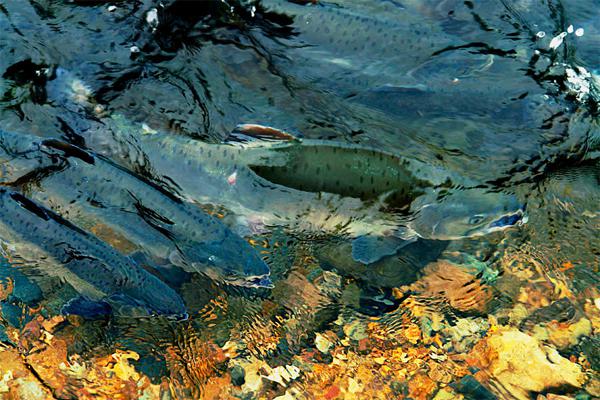
Old-timers say that the first street Magadan were clearing cut through in the coniferous forest, and on the site of today's mechanical plant hunted bears.
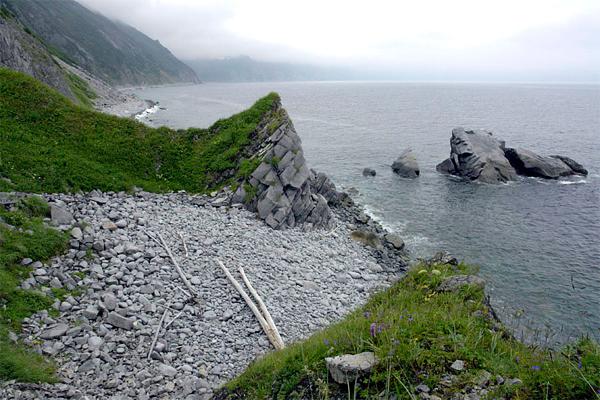
17
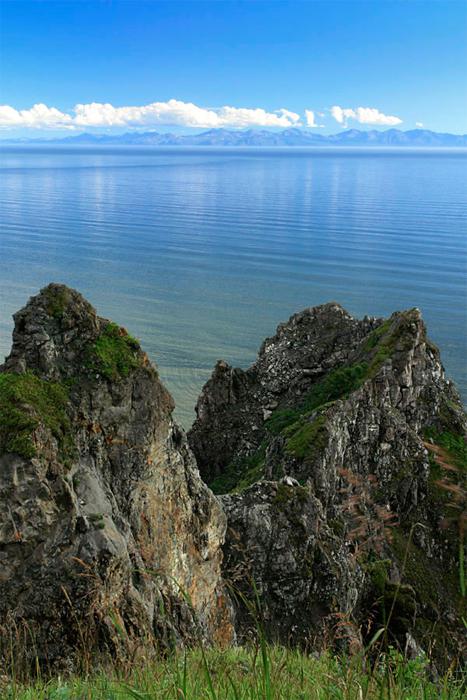
18
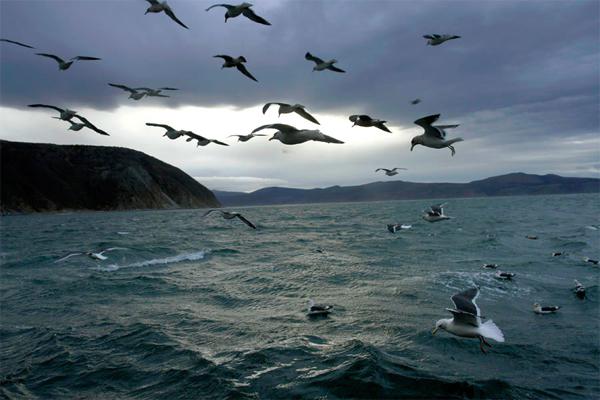
19
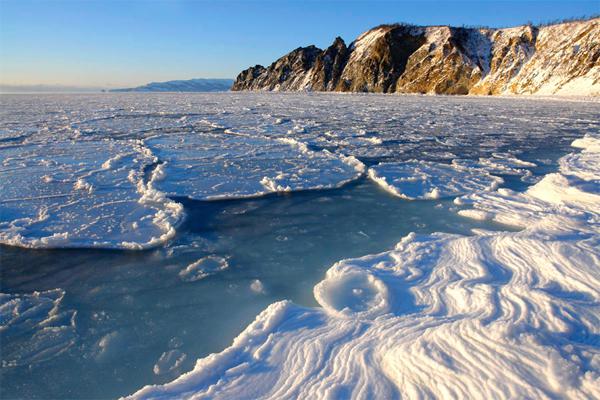
20
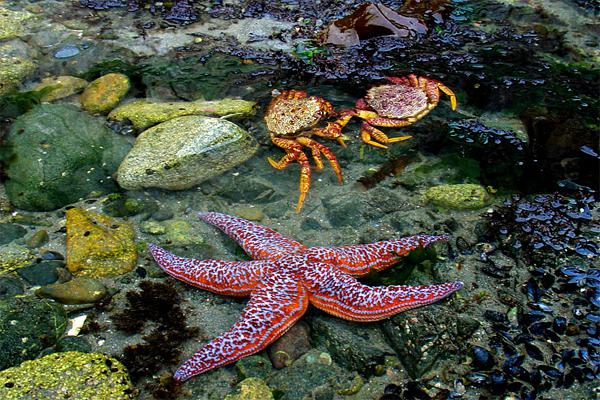
21
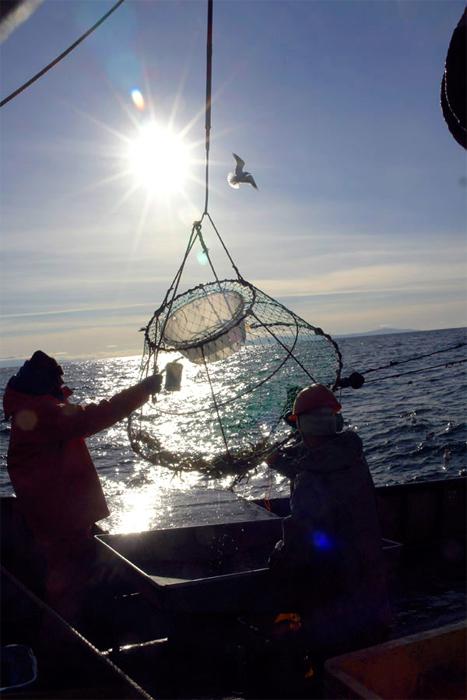
22
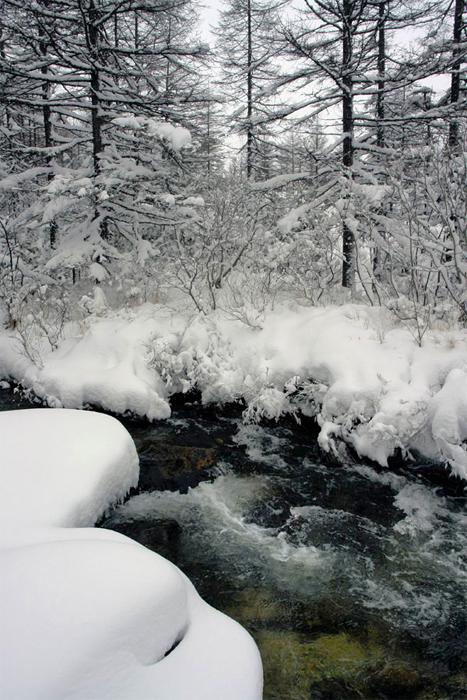
23
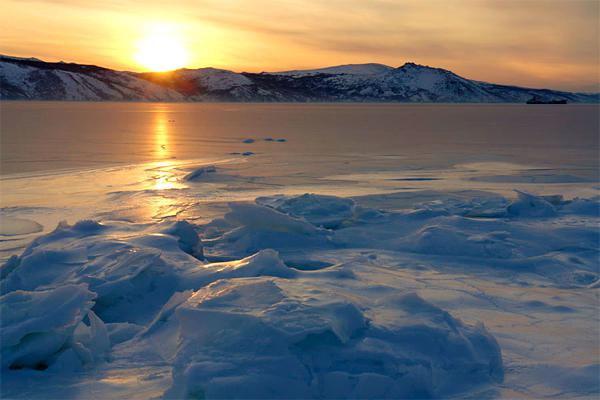
Source:
The majority of people in our country with the word Magadan there is only one association - the most terrible and heavy camp prisoners. And that is certainly true. However, few people think that there is in the Magadan region in addition to the camps and prisoners. I'm talking about the beautiful original nature of these harsh northern places. When I saw photos there, longing to see it with my own eyes do not let go for a second. And, interestingly, the desire was to go it on their own, but not at public expense. Well, you know what I mean.
23 beautiful views of the Magadan region and the city of Magadan, accompanied by legends and historical facts about this remote and harsh place.

The first gold in Kolyma found lone prospector Bari Shafigullin nicknamed Boriska in 1915 Srednekansk area.

In 1928, the first Kolyma expedition geologist Yu.A.Bilibina initiated a detailed study of the Kolyma River. The result of the expedition was the discovery of gold-North-East region.

December 17, 1930 in the village of Nagaevo, triggered the current capital of the Kolyma River, was created Nagaevsky village council. He offered to call Severostalinskom city and bay where it is located, from Nagaevskoy rename the bay Lazo in memory of the hero of the Civil War, tortured by the Japanese in the Far East. The plans were never realized.

In 1931, the Kolyma was established "State Trust for industrial and road construction in the area of the Upper Kolyma" Dalstroy. "

Around the same time began the organization of the Kolyma labor camps. It existed before the formation of the Magadan region. Nevertheless, even now, many residents are Russian city of Magadan camp with watchtowers and barbed wire.

During the Great Patriotic War, many magadantsy fought and helped the rest of the front of the hard work. On defense measures Kolyma residents collected a total of about 500 million rubles. The funds kolymchan built a large amount of military equipment, such as a link bombers "Komsomol Kolyma" air squadron "of Soviet polar explorers," aircraft "Dalstroevets", "Kolyma farmer", "social activist" Dalstroi "tank column" Pioneer Kolyma. "

His appearance is obliged to Magadan sea. In the early 1930s, sailors found the bay, which at first was called Portage, and later - Nagaeva. It turned out that the bay - large and deep, well located, with a flat bottom that allows the courts to come close to the shore. In the Bay built a port and on the beach - a working village, which in 1939 was transformed into the city of Magadan.

In the second half of the 80-ies of XX century in the "Serpantinka", where in the late 1930s, prisoners were shot, we started to conduct the washing operation - it turned out that on this site there are deposits of gold. However, with the gold-bearing sands in the wash device constantly gets human bones and bullets. Because of this, the miners categorically refused to work here, and the mine was closed down.

Legends
Locals tell the tale of the Kolyma River. She was born in the distant taiga in the mountains. After some time, he broke away from the mother, went to seek his grandmother Kolyma-Sea. Gradually Kolyma matured and began to appear in her children streams that turn into rivers. Daughters of the River Kolyma Bayagchan mother told me to start at a lot of fish, so that people had food. Another daughter - Korkodan - ordered to be narrow and high banks, where people were hiding from the cold. The youngest daughter - Anuy river - a mother punished to spread along the banks of partridges and hares, that people were fed. A son - River Omolon - asked her to wake up early from their winter dormancy. And it became mighty and turbulent river Omolon. She wakes up before all in the second half of May, and wake-Kolyma old woman, so she went to look for the sea. Grandmother-sea learned that there is a river, which is looking for her whole life, and she stepped forward. Sea scattered land splashed forward and joined the river to the sea. Therefore Kolyma so unexpectedly wide spreads at the confluence of the sea.

There is an old legend of Orochi Evens or associated with mud-bath resort Talaya Magadan. She says that in the valley of the river thawed, local residents discovered the thawed land plot on which always crept fog. Because of superstitious fear, people tried to bypass this place. But one day in the forest was sick and weak old man. The old man drank water source and warmed himself by bathing in it, and when the tribesmen came back, they found him healthy.

One of the attractions of the Kolyma tract (now the federal highway "Kolyma") is a mountain road after the village of the fork, where the mountains as it is compressed between a path. There are many dangerous places where accidents occur frequently. One of them is called Swallow's Nest. If you believe the popular legend, there sat a machine gunner who shot the fleeing camp prisoners.

His appearance is obliged to Magadan sea. In the early 1930s, sailors found the bay, which at first was called Portage, and later - Nagaeva. It turned out that the bay - large and deep, well located, with a flat bottom that allows the courts to come close to the shore. In the Bay built a port and on the beach - a working village, which in 1939 was transformed into the city of Magadan.

According to legend, one of the Sea of Okhotsk fierce typhoon swept. He drove the waves of the sea in the hills and left piles of sediment. Marine sediments in the Even - "Mon-year." From this word comes the name and city of Magadan.

There is a legend that the founders were exiled to Magadan Leningrad. When they were brought to the Kolyma, they saw a bleak rocky. People began to look for something familiar, and suddenly in the wake of the bay Nagaeva spotted fish, smelt. Leningradites remembered native Neva and rolled up their sleeves, laid the first stone in the foundation of the city. Then they built a seaport, factories began to pull Kolyma highway. So there Magadan. Like it or not, history is silent, but smelt magadantsy still regarded with trembling reverence - as a symbol of a distant, ever lost homeland of their ancestors.

Old-timers say that the first street Magadan were clearing cut through in the coniferous forest, and on the site of today's mechanical plant hunted bears.

17

18

19

20

21

22

23

Source:





